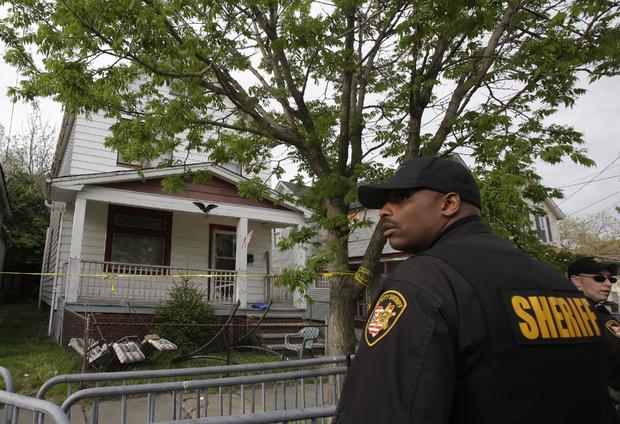What's changed since Cleveland's last horrific crime?
On Halloween 2009, the Cleveland Division of Police discovered 11 dead women in a house on Cleveland's Imperial Avenue.
Less than seven miles away, Amanda Berry, Gina DeJesus and Michelle Knight endured another day of captivity. They would not emerge for another four years.
The owner of the Imperial Avenue house, Anthony Sowell, was sentenced to death in 2011 for raping and killing all 11 women.
The grisly discovery in 2009 exposed deep failures by the Cleveland Division of Police to pursue missing women and to investigate sexual assaults.
Most shocking, the police department had arrested Sowell for rape in 2008 and then let him go. A Cleveland detective interviewed a woman who claimed Sowell had tried to rape her. The detective apparently did not believe the woman and Sowell, a convicted rapist, was released instead. He went on to kill six more women.
CBS News documented these failures in an investigation broadcast in 2009.
In response, Cleveland Police Chief Michael McGrath defended his department saying they had done nothing wrong. His superior, the Director of Public Safety, Martin Flask, agreed.
As the spotlight was focused on the Cleveland police department's poor handling of sex crimes, it was uncovered that the department was storing more than 1,000 rape kits with DNA of accused rapists that were never tested.
Despite these oversights, no one was fired.
As criticism grew, Cleveland Mayor Frank Jackson created a commission to recommend reforms on how the Cleveland Division of Police handled sex crimes and missing persons reports. A new web site was set up and a new missing persons unit was formed along with 24 other recommendations.
Megan O'Bryan, head of the Cleveland Rape Crisis Center served on the mayor's commission and says she's pleased with the progress made within the Cleveland Division of Police and its improved response to missing persons. But she's concerned that workloads are still an issue, in particular in the sex crimes unit.
- Cleveland police chief: "No hesitation" by officers who found missing women
- 1 week later, Ohio officer, dispatcher describe discovery of missing women
- Cleveland victim Michelle Knight's case prompts call for police review
With the discovery of the three missing young women last week, critics are asking how the Cleveland Division of Police could have missed another horrific crime against women in its community.
Local civil rights lawyer David Malik has sued the Cleveland Division of Police over a dozen times for misconduct.
Malik blames the problems in part on a 2004 decision to centralize the police department. He says the Division's decision to shut down neighborhood-based mini police stations left less oversight in communities.
"It's my belief that if these mini-stations had still been around...then you really would have to wonder how much sooner the information about Anthony Sowell and these three women would have reached the department," he said.
There has been some progress on the untested rape kits.
In late 2011, the state's Attorney General Mike DeWine asked all police departments statewide to send untested rape kits to the state's crime lab for free testing. Cleveland sent in 1,348 kits. So far, 498 of Cleveland's kits have been tested with 178 "hits" to DNA profiles in the FBI's national DNA database known as CODIS.
The city's new missing persons web site allows the public to easily track who is missing and for how long. Recent attention on missing persons through the discovery of Amanda Berry, Michelle Knight and Gina DeJesus spurred the reporting of new missing persons cases. Since last Wednesday, CBS News has learned there have been 14 new missing persons cases added to the city's database.
While the leadership of Cleveland's law enforcement and the city is the same, there has been one key personnel switch.
Back in 2009, one of the most vocal critics of the Cleveland Division of Police was then Cuyahoga County Judge Tim McGinty. While the police chief claimed the department made no mistakes in the Sowell case, the judge disagreed.
"Eleven people found dead in one building and in the area of a home and kept as trophies corroded and they did good police work?" McGinty asked at the time. "Something is wrong here."
McGinty pointed to a widespread practice in Cleveland where violent criminals like Anthony Sowell were caught and released due to lack of resources.
"It's like trout fishing," McGinty told CBS News in 2009, "They don't have the time. They don't have the willpower, and they don't have the resources, the numbers," he said.
Fed up with the lack of reforms, McGinty retired from the bench and ran for county prosecutor. He won, and McGinty is now prosecuting Ariel Castro charged with the kidnapping and rape of Michelle Knight, Amanda Berry and Gina DeJesus.
